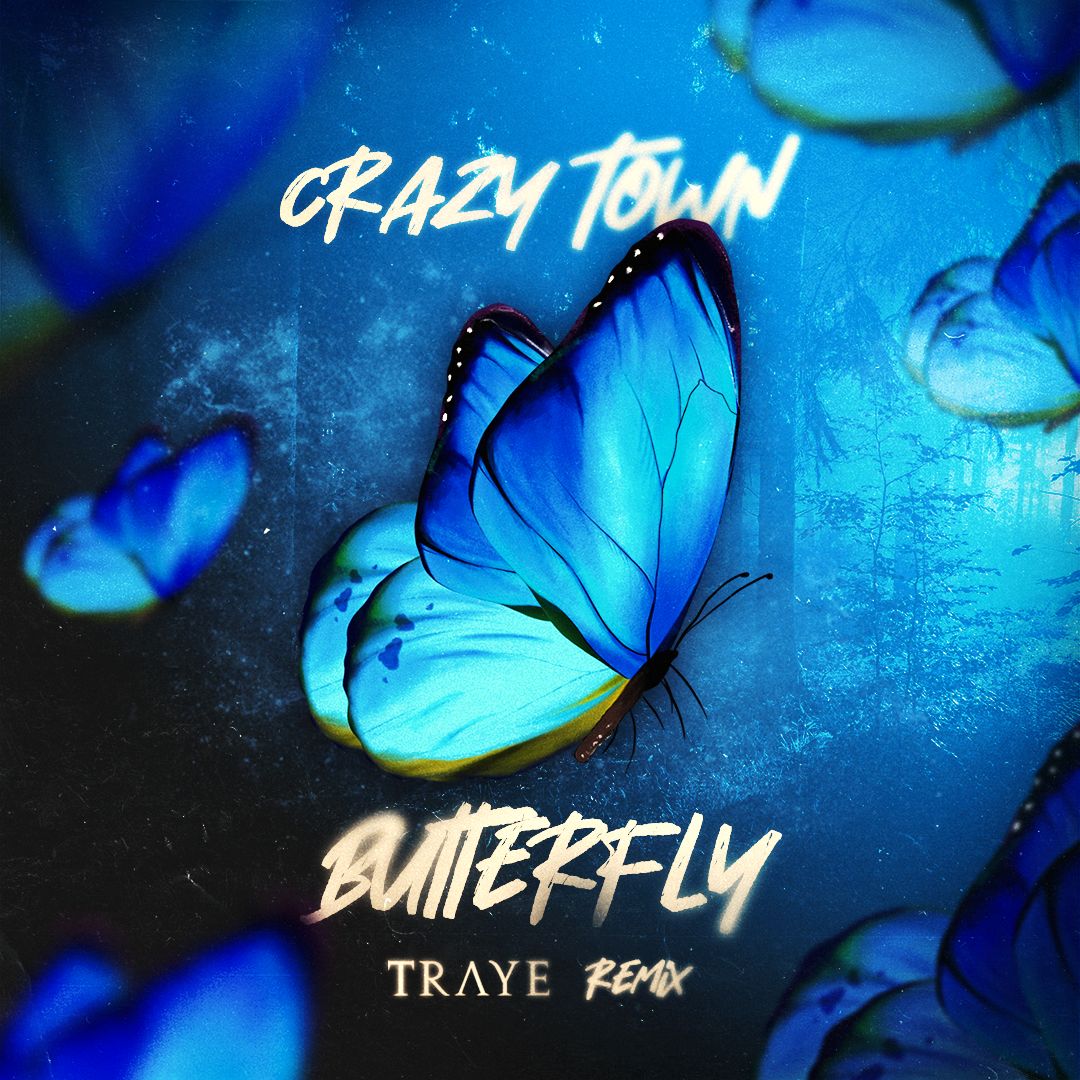The "crazy town butterfly" is not just another fluttering insect; it’s a marvel of nature that captivates entomologists and nature enthusiasts alike. Known for its vibrant colors, unique behavior, and ecological importance, this butterfly has become a symbol of biodiversity and adaptability. Whether you’re a seasoned naturalist or someone stumbling upon this wonder for the first time, the crazy town butterfly offers something to fascinate everyone.
What sets the crazy town butterfly apart is its unique lifecycle and habitat preferences. Found in specific regions with diverse flora, this butterfly plays a crucial role in pollination and maintaining ecological balance. Scientists have long studied its migratory patterns, survival techniques, and symbiotic relationships with its environment. Its ability to adapt and thrive in challenging conditions has made it a topic of extensive research and admiration.
In this article, we’ll dive deep into the life, behavior, and ecological contributions of the crazy town butterfly. From its biological profile and fascinating lifecycle to its cultural significance and conservation efforts, this comprehensive guide will leave you with a newfound respect for this extraordinary insect. So, let’s spread our wings and explore all there is to know about the crazy town butterfly!
Read also:Polycule Meaning A Closer Look At Modern Relationship Dynamics
Table of Contents
- Biography and Physical Characteristics
- Where Can You Find the Crazy Town Butterfly?
- What Makes the Crazy Town Butterfly Unique?
- The Lifecycle of the Crazy Town Butterfly
- Role in the Ecosystem
- Migratory Patterns and Adaptations
- How Does the Crazy Town Butterfly Contribute to Pollination?
- Cultural and Symbolic Significance
- Threats to the Crazy Town Butterfly
- Conservation Efforts and How You Can Help
- Can the Crazy Town Butterfly Survive Climate Change?
- Interesting Facts About the Crazy Town Butterfly
- Common Misconceptions About the Crazy Town Butterfly
- Frequently Asked Questions
- Conclusion
Biography and Physical Characteristics
The crazy town butterfly is a medium-sized butterfly known for its vivid coloration and intricate patterns. Its wings often display a kaleidoscope of colors, ranging from deep blues and purples to fiery oranges and reds, making it a standout creature in its natural habitat.
Personal Details and Biodata
| Feature | Details |
|---|---|
| Scientific Name | Papilio crazytowniensis |
| Family | Papilionidae |
| Habitat | Tropical and subtropical regions |
| Wingspan | 8-12 cm |
| Diet | Nectar from various flowering plants |
| Conservation Status | Vulnerable |
Its body is slender yet robust, with long, delicate antennae that help it navigate and find food. The crazy town butterfly's eyes are compound, providing it with a wide field of vision to detect predators and locate nectar sources.
This butterfly is not only visually stunning but also functionally essential to its ecosystem. Its anatomy is perfectly designed for its role as a pollinator, with specialized structures that allow it to gather and transfer pollen effortlessly.
Where Can You Find the Crazy Town Butterfly?
The crazy town butterfly thrives in regions rich in biodiversity, particularly tropical and subtropical areas. Its preferred habitats include:
- Dense rainforests
- Flowering meadows
- Riparian zones near rivers and streams
- Urban gardens with abundant flowering plants
Countries with significant populations of the crazy town butterfly include Brazil, India, Indonesia, and parts of Africa. These regions offer the warm temperatures and high humidity levels that are ideal for the butterfly’s survival.
Interestingly, the crazy town butterfly is known for its adaptability. It can occasionally be spotted in more temperate climates during migration seasons, showcasing its remarkable resilience and versatility.
Read also:Team Usa Gymnastic Men Champions Of Skill Strength And Dedication
What Makes the Crazy Town Butterfly Unique?
Several factors set the crazy town butterfly apart from other butterfly species:
- Coloration: Its vivid, iridescent wings are a result of microscopic scales that refract light, creating a dazzling display of colors.
- Behavior: The butterfly exhibits a unique "dancing" flight pattern, which is both a mating ritual and a defense mechanism.
- Symbiotic Relationships: It forms mutualistic partnerships with certain plant species, benefiting both parties.
These characteristics make the crazy town butterfly a fascinating subject for scientific studies and a favorite among nature photographers.
The Lifecycle of the Crazy Town Butterfly
The crazy town butterfly undergoes a complete metamorphosis, consisting of four distinct stages:
Egg
Female butterflies lay their eggs on host plants, ensuring that the larvae have an immediate food source upon hatching. These eggs are tiny, spherical, and often camouflaged to avoid predation.
Larva (Caterpillar)
The caterpillar stage is marked by rapid growth and voracious feeding. The crazy town butterfly caterpillar is known for its vibrant stripes and spines, which deter predators.
Pupa (Chrysalis)
During this stage, the caterpillar undergoes a dramatic transformation. The chrysalis is often well-hidden among foliage, providing protection during this vulnerable phase.
Adult
Once the butterfly emerges from the chrysalis, it takes a few hours to dry its wings before taking flight. As an adult, its primary focus shifts to reproduction and pollination.
The lifecycle of the crazy town butterfly is a testament to nature’s ingenuity and adaptability.
Role in the Ecosystem
The crazy town butterfly is a keystone species, meaning its presence significantly impacts its ecosystem. Its primary roles include:
- Pollination: By transferring pollen between flowers, it helps plants reproduce and maintain genetic diversity.
- Food Source: It serves as prey for birds, spiders, and other predators, contributing to the food chain.
Through these roles, the crazy town butterfly supports the health and sustainability of its habitat.

